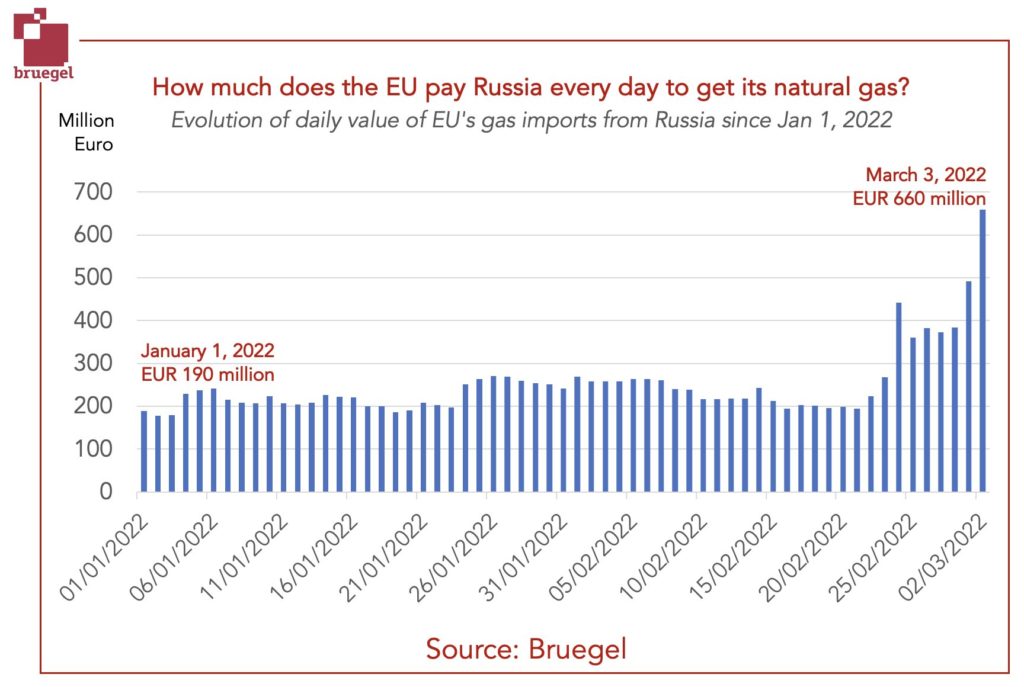A contronym is a word that can be used as its own opposite — for instance, fast as in ‘go fast’ and ‘stuck fast’. Another example is cleave — which can mean to split apart or to bring together.
The most relevant example right now is sanction — which can either mean to allow something or to forbid it. The double meaning seems all the more appropriate when we consider the West’s response to the Russian invasion of Ukraine.
It’s not that the sanctions announced so far are meaningless. Many of them are already having an impact. Yet Europe finds itself in a position where it is trying to bankrupt the Kremlin while simultaneously bankrolling Putin’s regime.
That’s because Europeans are still buying Russian gas and oil — and furthermore doing it on a colossal scale. A chart tweeted out by Simone Tagliapietra, a senior fellow at the Bruegel institute, illustrates the extent of the problem:

This shows the daily market value of the natural gas exported from Russia to the European Union. As you see, that value has gone up since the start of the invasion — a function of rocketing energy prices.
In a follow-up tweet, Tagliapietra explains that the price of gas via long-term contracts lags the ‘spot price’ — meaning that the exporter doesn’t immediately get the full benefit of any surge in current market value. However, the fact remains that the countries of the EU are still sending the Russians hundreds of millions of dollars every day.
And that’s just natural gas. Add in oil exports and that’s hundreds of millions more. So how do we shut off the pipeline of cash from Europe to Russia?
With great care. Western countries could restrict Russian energy exports or ban them altogether. Comments to that effect from the US Secretary of State Anthony Blinken were enough to send oil prices soaring above the $125 per barrel mark overnight. In terms of Russian revenues, higher prices could offset a partial fall in the physical volume of exports.
A better way would be to reduce the demand for oil and gas. In the longer term, that means switching away from fossil fuels altogether. But in the shorter term, we don’t need to find alternatives — we just need to use less.
Energy efficiency is an obvious no-brainier. There are tens of millions of homes across Europe that could be better insulated than they are. We could ramp up progress on putting this right in a matter of weeks and months — not the years and decades it takes to build nuclear power stations or develop a shale gas industry.
There are other quick wins we could go for. For instance, with hybrid working patterns established in many industries, a temporary shift towards more working from home would reduce commuting and therefore fuel use. Car pooling would also help.
I’m not suggesting any return to compulsory lockdowns. However, a voluntary national effort could make a difference. At the very least, we’d find out whether people were willing to do more than put a blue-and-yellow flag in their Twitter bios.










Join the discussion
Join like minded readers that support our journalism by becoming a paid subscriber
To join the discussion in the comments, become a paid subscriber.
Join like minded readers that support our journalism, read unlimited articles and enjoy other subscriber-only benefits.
Subscribe